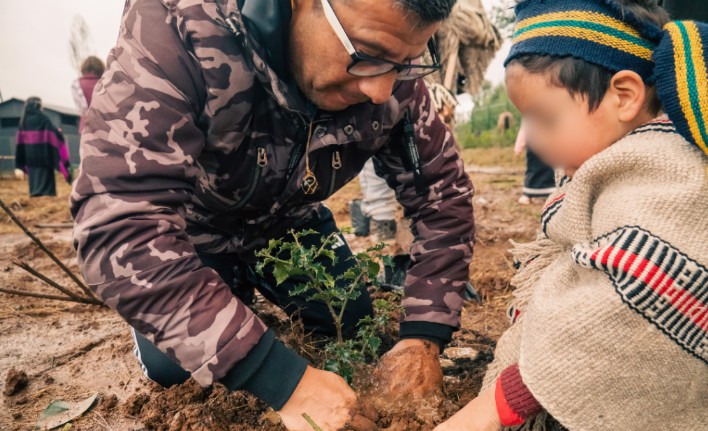The Proposal to Strengthen Security Presented by President Boric's Government to Forestry Contractors
In recent hours, the government of President Gabriel Boric delivered a detailed document to the Association of Forestry Contractors containing six proposals aimed at ensuring the security of companies in this sector in the southern part of the country, an area deeply affected by the Mapuche conflict, which has been marked by roadblocks and barricades. The document, accessed by El Mostrador, bears the signature of Undersecretary of the Interior Manuel Monsalve and outlines, among other measures, state-of-the-art drones capable of surveillance up to 150 kilometers, 34 armored trucks at a cost of $5.5 billion—purchases authorized through direct procurement—60 surveillance cameras (24 of them thermal), 53 license plate reading gantries, and double lighting at 31 points along Route 5 South and Route 160, among other measures detailed in the text.
"By instruction of the President of the Republic, we have come to deliver proposals to improve security for forestry workers, contractors, and transporters in the southern macrozone." This is how the document begins, which President Gabriel Boric's government handed over to one of the groups that has demanded the Executive take action to combat violence in the area through various protests and roadblocks.
The document, accessed by El Mostrador, is signed by Undersecretary of the Interior Manuel Monsalve and contains six main points, all focused on increasing police presence and resources to combat acts of violence. The document was delivered on May 4 to the Association of Forestry Contractors (Acorofag), who are currently reviewing the proposal.
In fact, the first point is precisely the increase in police presence in the area. "Nineteen armored units have been transferred to Carabineros, which, combined with existing patrols, will allow an increase from seven to 12 checkpoints on routes in the province of Arauco, as well as 17 checkpoints in the La Araucanía region, starting May 2," they stated, adding that these controls "will be noticeable and visible to improve security conditions."
The second point of the proposal is an investment in new security equipment for the Biobío and La Araucanía regions, totaling $5.5 billion. On this matter, Undersecretary Monsalve "will sign a resolution enabling the direct purchase of equipment," including "34 armored trucks for the Biobío and La Araucanía regions," as well as "state-of-the-art drones with a range of up to 150 kilometers."
Two of the main hotspots for violence are Route 5 South and Route 160, which are also addressed in the proposals. Specifically, Undersecretary of Public Works José Herrera "will push for modifications to contracts with concession companies for both Route 5 and Route 160 to impose improved security conditions, including the installation of thermal surveillance cameras, license plate reading gantries, double lighting, and safe rest areas." Specifically, this will involve 60 surveillance cameras (24 thermal), 53 license plate reading gantries, and double lighting at 31 points along the routes.
Along these lines, a complementary public insurance program will be implemented. "The government commits to delivering a technical proposal within 30 days to establish a complementary public insurance program that will significantly reduce deductible payments," they stated.
For affected workers, a reparations plan will be created. "The government commits to establishing a set of benefits to assist workers affected by rural violence," including measures such as "immediate psychological, social, and legal support" and a "lifetime grace pension in the event of a worker's death," provided by the Undersecretary of the Interior.
Finally, the government assures it will respond to legislative measures aimed at enhancing security on roads and highways in justified cases.
Source:elmostrador.cl















